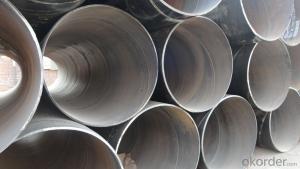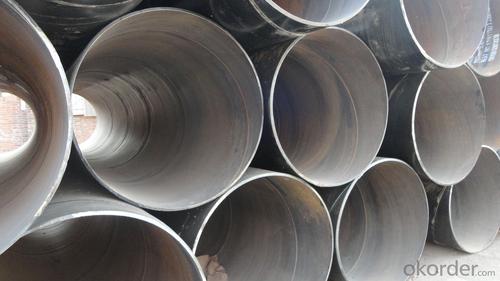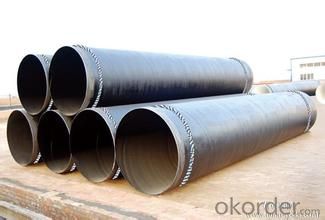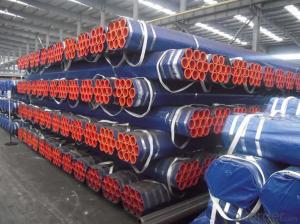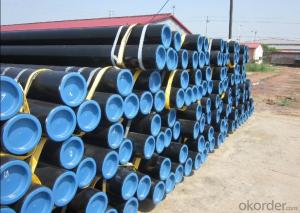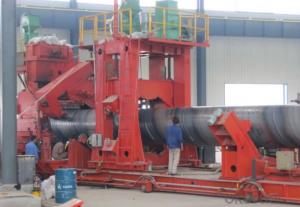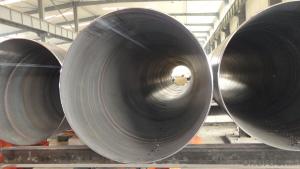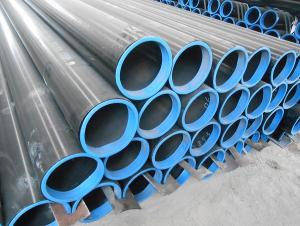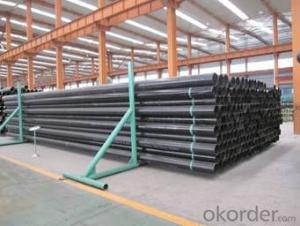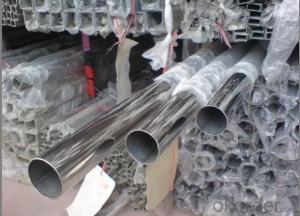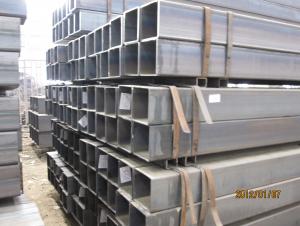SSAW Hot Rolled Steel Pipe
- Loading Port:
- China Main Port
- Payment Terms:
- TT or LC
- Min Order Qty:
- 100 m.t.
- Supply Capability:
- -
OKorder Service Pledge
OKorder Financial Service
You Might Also Like
Quick Details
| Thickness: | 6 - 28 mm | Section Shape: | Round | Outer Diameter: | 219 - 3500 mm |
Place of Origin: | Tianjin (Mainland) | Secondary Or Not: | Non-secondary | Application: | Oil Pipe |
| Technique: | SAW | Certification: | API | Surface Treatment: | as per your request,Black/Blue 3PE or as per your request |
Special Pipe: | API Pipe | Alloy Or Not: | Non-alloy | ||
| Certificate: | ISO 9001:2008, API, SGS, BV | Material: | Q235A/B,Q345,L360 and X42-X80 grade | Package: | In bulk or bundles |
| Usage: | structure pipe | Main market: | all over the world | Product name: | SSAW Spiral Steel Tube |
| End: | Beveled End |
FAQ of SSAW Steel Pipe:
①How is the quality of your products?
Our products are manufactured strictly according to national and internaional standard, and we take a test on every pipe before delivered out. If you want see our quality certifications and all kinds of testing report, please just ask us for it.
Guaranteed: If products’ quality don’t accord to discription as we give or the promise before you place order, we promise 100% refund.
②How about price?
Yes, we are factory and be able to give you lowest price below market one, and we have a policy that “ for saving time and absolutely honest business attitude, we quote as lowest as possible for any customer, and discount can be given according to quantity”,if you like bargain and factory price is not low enough as you think, just don’t waste your time.Please trust the quotation we would give you, it is professional one.
③Why should you chose us?
Chose happens because of quality, then price, We can give you both.Additionally, we can also offer professional products inquiry, products knowledge train(for agents), smooth goods delivery, exellent customer solution proposals.Our service formula: good quality+good price+good service=customer’s trust
SGS test is available, customer inspection before shipping is welcome, third party inspection is no problem.
Any question, pls feel free to contact us !
SSAW Steel Pipe Images:
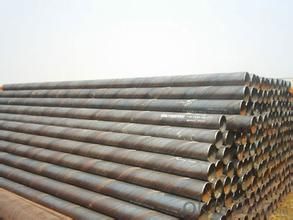
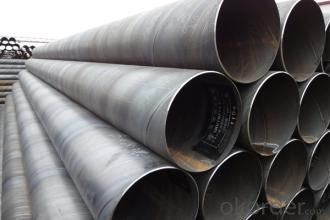
- Q: Can steel pipes be used for architectural purposes?
- Yes, steel pipes can be used for architectural purposes. Steel pipes offer various advantages such as durability, strength, and versatility, making them suitable for architectural applications. They can be utilized in constructing building frames, staircases, handrails, and other structural elements. Additionally, steel pipes can be aesthetically pleasing when employed in modern and industrial designs, making them a popular choice for architectural purposes.
- Q: How are steel pipes protected against rusting?
- Steel pipes are protected against rusting through a process called corrosion protection. There are several methods employed to prevent rust formation on steel pipes, including: 1. Coatings: One common method is applying various coatings to the surface of the steel pipes. These coatings act as a barrier, preventing oxygen and moisture from reaching the metal surface and initiating the rusting process. Coating options include epoxy, polyethylene, zinc, or even a combination of these materials. 2. Galvanization: Galvanizing steel pipes involves immersing them in a bath of molten zinc. This process creates a protective layer of zinc on the surface of the pipes which acts as a sacrificial barrier. If any small areas of the pipe surface are exposed, the zinc coating will corrode instead of the steel, providing ongoing protection against rust. 3. Cathodic Protection: This method utilizes an electrical current to protect the steel pipes. By connecting the pipes to a sacrificial anode, usually made of zinc or magnesium, the anode will corrode instead of the steel pipes when exposed to moisture and oxygen. This process is commonly used in underground or underwater applications. 4. VCI (Vapor Corrosion Inhibitor) Technology: VCI technology involves the use of chemical compounds that release a vapor that protects the steel pipes from rusting. These compounds form a thin layer on the surface of the pipes, inhibiting the corrosion process by neutralizing oxygen and moisture. 5. Regular Maintenance: In addition to the above methods, regular inspection and maintenance are crucial to prevent rust formation on steel pipes. This includes cleaning the pipes, removing any accumulated debris or corrosive substances, and repairing any damaged coatings or protective layers. Overall, these methods of corrosion protection effectively safeguard steel pipes from rusting, ensuring their longevity and durability in various industrial, commercial, and residential applications.
- Q: What are the common sizes of steel pipes available?
- The common sizes of steel pipes available vary widely depending on the application, but some standard sizes include 1/8 inch, 1/4 inch, 1/2 inch, 3/4 inch, 1 inch, 2 inch, 3 inch, 4 inch, 6 inch, 8 inch, 10 inch, 12 inch, 14 inch, 16 inch, 18 inch, 20 inch, 24 inch, 30 inch, 36 inch, 42 inch, 48 inch, 60 inch, and 72 inch.
- Q: Can steel pipes be used for geothermal energy systems?
- Yes, steel pipes can be used for geothermal energy systems. Steel pipes are commonly used for their durability and resistance to high temperatures, making them suitable for transporting hot water or steam in geothermal energy systems. Additionally, steel pipes have excellent corrosion resistance, which is crucial for geothermal environments that often contain corrosive substances.
- Q: How are steel pipes measured and labeled?
- Steel pipes are typically measured and labeled based on their outside diameter (OD) and wall thickness. The measurement is usually expressed in millimeters or inches. The label includes these dimensions, such as "2-inch OD, 1/8-inch wall thickness." Additionally, the length of the pipe may also be included in the labeling, ranging from standard lengths like 6 meters or 20 feet.
- Q: How are steel pipes used in the manufacturing of offshore wind turbines?
- Steel pipes are used in the manufacturing of offshore wind turbines for various purposes such as supporting the turbine structure, housing electrical cables, and transporting fluids like hydraulic oil and cooling water. These pipes provide structural strength, corrosion resistance, and durability, ensuring the stability and functionality of the turbines in the harsh offshore environment.
- Q: What are the different methods of cleaning steel pipes?
- There are several methods of cleaning steel pipes, including mechanical cleaning, chemical cleaning, and high-pressure water jetting. Mechanical cleaning involves the use of brushes, scrapers, or other abrasive tools to remove dirt and debris from the pipe's surface. Chemical cleaning involves the application of solvents or acids to dissolve tough stains or residues. High-pressure water jetting uses a powerful stream of water to dislodge and remove contaminants from the pipe. These methods can be used individually or in combination depending on the specific cleaning requirements.
- Q: Can steel pipes be used for sewage disposal systems?
- Yes, steel pipes can be used for sewage disposal systems. Steel pipes are commonly used in sewage systems due to their durability, resistance to corrosion, and ability to withstand high pressure. They are suitable for carrying wastewater and sewage safely and efficiently.
- Q: Galvanized steel pipe, PPR pipe, PE pipe, U-PVC pipe and HDPE double wall corrugated pipe and what is the difference between the characteristics of
- U-PVC tubes are hard poly vinyl pipes, because they contain chlorine, so they are mainly used in sewer pipes or electrical wiring;HDPE double wall corrugated pipe is a high-density polyethylene pipe, because of its excellent electrical insulation performance, now mainly used for distribution line arrangement.
- Q: Can steel pipes be used for underground gas storage?
- Yes, steel pipes can be used for underground gas storage. Steel pipes are commonly used in underground gas storage facilities due to their strength, durability, and resistance to corrosion. They provide a reliable and secure means of storing and transporting gas underground.
Send your message to us
SSAW Hot Rolled Steel Pipe
- Loading Port:
- China Main Port
- Payment Terms:
- TT or LC
- Min Order Qty:
- 100 m.t.
- Supply Capability:
- -
OKorder Service Pledge
OKorder Financial Service
Similar products
Hot products
Hot Searches
Related keywords
